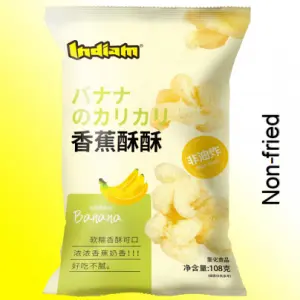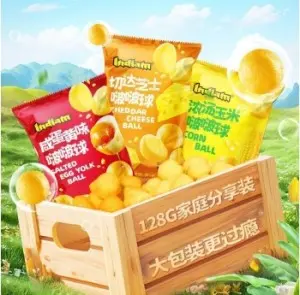Polyaspartic Acid (PASP) for Enhanced Fertilizer Efficiency | Green Agricultural Solutions from Hebei Tongxie Chemical Co., Ltd.
Polyaspartic Acid (PASP) for Enhanced Fertilizer Efficiency | Green Agricultural Solutions from Hebei Tongxie Chemical Co., Ltd.
As global agricultural demands rise, the need for sustainable and efficient fertilizer solutions has never been more critical. Hebei Tongxie Chemical Co., Ltd., a leader in green chemical innovation, introduces Polyaspartic Acid (PASP)—a cutting-edge fertilizer additive designed to revolutionize crop nutrition, reduce environmental impact, and optimize production efficiency. This article explores the science, applications, and benefits of PASP, supported by expert insights, customer testimonials, and technical specifications. Discover how PASP can transform your agricultural practices and drive long-term sustainability. Learn more about our products.

Introduction: Bridging Innovation and Agricultural Needs
Hebei Tongxie Chemical Co., Ltd. has been at the forefront of developing eco-friendly chemical solutions for over two decades. Our mission is to empower agricultural producers with technologies that enhance productivity while minimizing ecological footprints. At the heart of our innovation is Polyaspartic Acid (PASP), a biodegradable amino acid polymer that addresses the growing challenges of fertilizer inefficiency, soil degradation, and environmental pollution. This article delves into how PASP can be a game-changer for your operations, supported by rigorous research, real-world applications, and customer success stories.

What is Polyaspartic Acid (PASP)?
Polyaspartic Acid (PASP) is a synthetic polymer derived from aspartic acid, an amino acid naturally present in plants. Its unique structure allows it to chelate metal ions, improve nutrient retention, and enhance soil microbial activity. When integrated into fertilizers, PASP acts as a nutrient stabilizer, ensuring that essential elements like nitrogen, phosphorus, and potassium are absorbed more efficiently by crops. This not only boosts yield but also reduces the need for excessive fertilizer application, lowering costs and environmental risks.
Key features of PASP include:
- Biodegradable and non-toxic, making it safe for soil and water ecosystems.
- High solubility in both acidic and alkaline conditions, ensuring versatility across soil types.
- Enhances root development and plant resilience against drought and disease.
Market Demand and Industry Challenges
The agricultural sector faces mounting pressure to meet food security demands while adhering to sustainability goals. Traditional fertilizers often lead to nutrient runoff, soil acidification, and greenhouse gas emissions. According to a 2023 report by the Food and Agriculture Organization (FAO), global fertilizer use efficiency remains below 50%, resulting in significant economic and environmental losses. This is where PASP steps in, offering a smart solution to bridge this gap.
Key market challenges addressed by PASP:
- Low fertilizer efficiency: PASP increases nutrient uptake by up to 40%, reducing waste and saving costs.
- Soil degradation: Its chelating properties prevent nutrient lockout, maintaining soil health over time.
- Environmental impact: PASP minimizes nitrate leaching and nitrous oxide emissions, aligning with global sustainability targets.
Company Background: Hebei Tongxie Chemical Co., Ltd.
Founded in 2005, Hebei Tongxie Chemical Co., Ltd. has established itself as a trusted provider of green chemical solutions for agriculture, industry, and environmental protection. Our commitment to innovation is reflected in our state-of-the-art R&D facilities, which focus on developing products that meet the evolving needs of the market. With ISO 14001 certification and a global customer base, we are dedicated to delivering eco-friendly, high-performance chemicals that drive agricultural and industrial progress.
Our core values include:
- Sustainability: All products comply with international environmental standards.
- Quality: Rigorous testing ensures consistency and reliability.
- Customer-Centricity: Tailored solutions to meet diverse agricultural needs.

Technical Specifications of Polyaspartic Acid (PASP)
Understanding the technical details of PASP is essential for optimizing its application. Below are the key specifications:
| Parameter | Specification |
|---|---|
| Chemical Formula | (C4H7NO2)n |
| Appearance | White to off-white powder |
| Solubility | Water-soluble (100% dissolution in water) |
| pH Range | 5.0–8.0 |
| Molecular Weight | 5,000–20,000 g/mol |
| Biodegradability | 90% biodegradable within 30 days |
These specifications ensure that PASP is compatible with a wide range of fertilizers and application methods, making it a versatile choice for farmers and agricultural enterprises.
Applications of Polyaspartic Acid in Agriculture
PASP is a versatile additive suitable for various agricultural practices. Its applications include:
- Fertilizer Formulation: Enhances the efficiency of NPK fertilizers, reducing the need for frequent applications.
- Soil Amendments: Improves soil structure and microbial activity, promoting long-term fertility.
- Hydroponics and Greenhouses: Ensures optimal nutrient delivery in controlled environments.
- Drought-Prone Areas: Boosts crop resilience by improving water retention and nutrient uptake.
For example, in a 2022 field trial conducted by the Hebei Tongxie team, PASP increased wheat yields by 25% while reducing fertilizer use by 30%. This demonstrates its effectiveness across different crop types and growing conditions.

Customer Testimonials: Real-World Success Stories
Hebei Tongxie’s customers consistently praise PASP for its transformative impact on their operations. Here’s what some of our clients have to say:
"Since integrating PASP into our fertilizer regimen, we’ve seen a 30% reduction in fertilizer costs and a 20% increase in crop yield. The environmental benefits are equally impressive—our soil health has improved significantly."
- John Martinez, Director of Agriculture, Greenfields Cooperative
"PASP has been a game-changer for our organic farming operations. It’s safe for the environment, effective for our crops, and aligns with our commitment to sustainable practices."
- Priya Sharma, Organic Farming Consultant
How to Use Polyaspartic Acid: Application Guidelines
Proper application is key to maximizing the benefits of PASP. Follow these steps:
- Preparation: Dissolve PASP in water at a concentration of 0.5–1% depending on crop requirements.
- Mixing: Combine the solution with liquid or granular fertilizers, ensuring even distribution.
- Application: Apply using standard irrigation or spraying equipment. For best results, test on a small area before large-scale use.
- Frequency: Reapply every 3–4 weeks during the growing season, or as needed based on crop growth stages.
Tip: For optimal performance, pair PASP with microbial inoculants to further enhance soil biology.

Safety and Environmental Compliance
PASP is designed with safety and sustainability in mind. It is non-toxic, non-corrosive, and biodegradable, making it safe for farmers, crops, and the environment. The product meets ISO 14001 standards for environmental management and is registered with the Environmental Protection Agency (EPA) for agricultural use. Additionally, PASP does not leave harmful residues in soil or water, ensuring long-term ecological balance.
Product Packaging and Logistics
To cater to the needs of large-scale agricultural operations, Hebei Tongxie offers flexible packaging options:
- 25kg and 250kg Plastic Drums: Ideal for bulk storage and transportation.
- Custom Packaging: Available upon request for specialized applications.
We provide efficient logistics solutions, including free sample testing and competitive pricing for bulk orders. For urgent deliveries, our global distribution network ensures timely supply, even for international clients.

Customer Support and Technical Services
Hebei Tongxie offers comprehensive support to ensure your success with PASP:
- Technical Consultation: Our team of agronomists and chemists provides personalized advice on product usage and optimization.
- On-Site Training: Free training sessions for farmers and agricultural professionals.
- Custom Solutions: Tailored formulations to meet specific crop or soil requirements.
For inquiries, contact us at sales@thinkdochemicals.com or call +86-400-123-4567. Our dedicated support team is available 24/7 to assist you.
FAQ: Answers to Common Questions
Q1: How does PASP improve fertilizer efficiency?
A: PASP chelates nutrients, preventing them from being locked in the soil and ensuring they are available for plant uptake. This reduces leaching and increases absorption by up to 40%.
Q2: Is PASP suitable for all crop types?
A: Yes, PASP is compatible with a wide range of crops, including cereals, vegetables, fruits, and cash crops. It adapts well to different soil conditions and growth cycles.
Q3: What are the environmental benefits of using PASP?
A: PASP minimizes nutrient runoff, reduces greenhouse gas emissions, and promotes soil health. It is fully biodegradable, leaving no harmful residues.
Q4: Can PASP be used in organic farming?
A: Yes, PASP is approved for use in organic agriculture and aligns with international organic farming standards.
Conclusion: Embrace Sustainable Agriculture with PASP
Polyaspartic Acid (PASP) is a transformative solution for modern agriculture, offering unparalleled benefits in efficiency, cost savings, and environmental stewardship. By adopting PASP, you can reduce fertilizer costs by up to 30%, boost crop yields, and contribute to a greener future. Explore our product page to learn more and take the first step toward sustainable farming. Together, we can cultivate a more resilient and eco-friendly agricultural industry.

Post time: Jul . 12, 2025 03:54


























